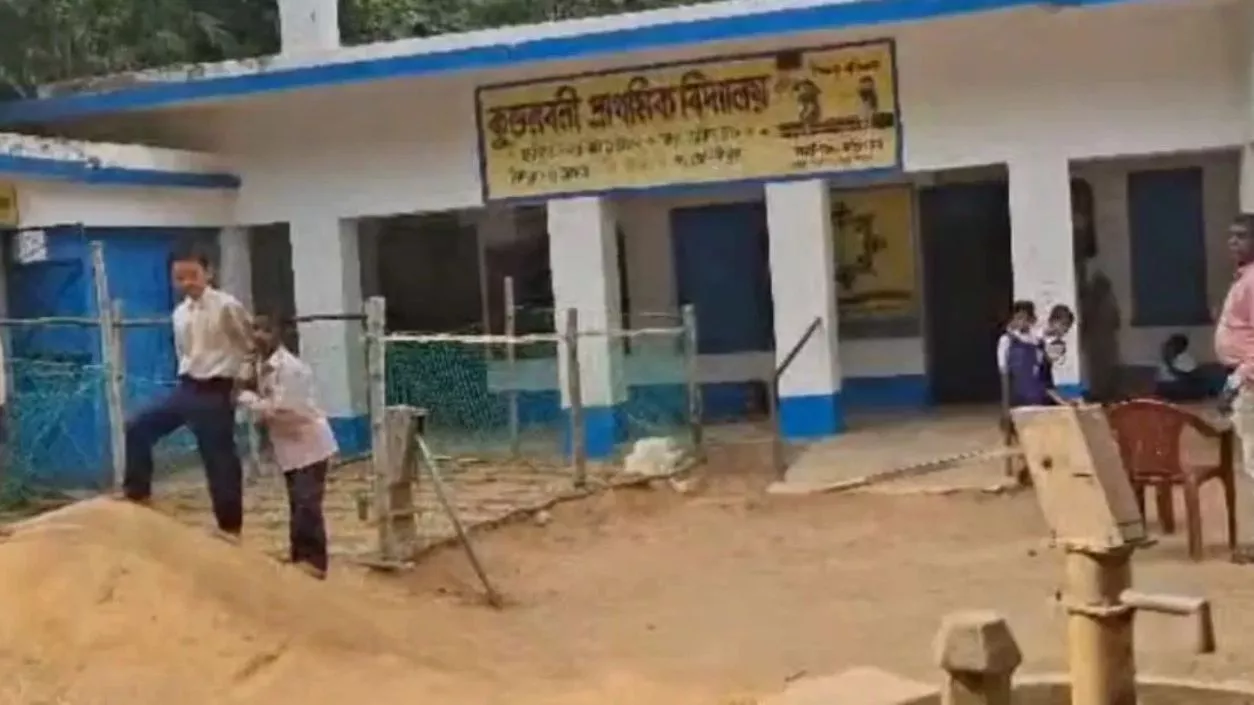.gif)
.gif)

Kundalabani, a village located about three kilometers from the Kangsabati River in Jangalmahal, has been facing a prolonged water crisis despite its proximity to the river and the presence of a Public Health Engineering (PHE) office. The Sajal Dhara project, which aimed to provide a solution, was implemented over a year ago, and a submersible pump was installed in the village as part of the project. However, the pump malfunctioned within days of installation, and despite repeated attempts to repair it, the village remains without a functioning water supply system.
As a result, the villagers are forced to walk one to one and a half kilometers to fetch drinking water from nearby sources. This has become a daily struggle for the community, affecting their quality of life and daily routines. The pump that was supposed to address the issue now serves no purpose and is left unused, while the people of Kundalabani continue to face water scarcity.
The breakdown of the submersible pump and the inability to restore it have raised concerns among villagers about the lack of long-term solutions to their water problems. Despite the PHE department being notified about the malfunction, no permanent repairs or replacements have been made. Local leaders, including the Deputy Chief of the Chadra Gram Panchayat, Taraknath Bera, have visited the village and assured residents that the issue will be addressed. However, these promises have yet to result in any tangible improvements.
The water crisis in Kundalabani is part of a larger issue affecting many remote villages in the Jangalmahal region. Many of these areas face inadequate infrastructure and poor access to basic resources, including drinking water. The situation is expected to worsen with the onset of the summer season, as the demand for water will increase, making it more difficult for villagers to manage daily water needs. Despite ongoing promises from local authorities, the village remains in a state of uncertainty, waiting for a reliable and permanent solution to the water shortage.